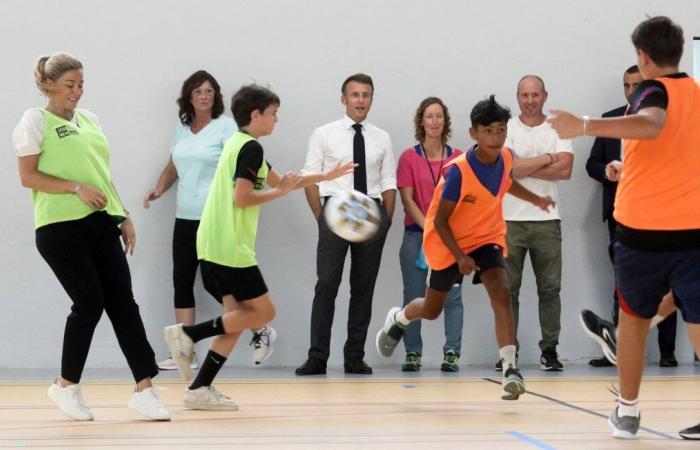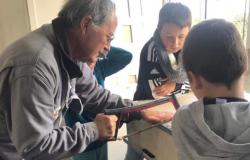On the issue of the sporting practice of middle school students, the observation made by the State is alarming. It is experiencing “a significant dropout”, according to a note from the Ministry of National Education addressed in particular to the rectors of academic regions. A third of boys and only a quarter of girls between 11 and 14 years old practice an hour of physical and sporting activity daily. A duration however recommended by the WHO.
To try to improve the situation, the executive therefore launched the system Two hours of additional physical and sporting activity per week at college (2HSC), a complement to PE classes. But two years after its implementation, the effects of the measure remain particularly mixed, even forcing the government to review its copy.
A “complex to implement” system
If in its note of October 22, published on November 7, the ministry first indicates that the results of the experiment “in 715 voluntary establishments demonstrated the relevance of the measure for middle school students far from regular practice”, he then recognizes that “the system is still perceived as complex to implement”. Its generalization to all 7,000 colleges therefore does not appear “unsustainable”.
The ministry, headed by Anne Genetet, has therefore decided “to refocus this system, free for families, only on colleges classified as REP/REP + [Réseaux d’éducation prioritaire]territories where the license rate [sportive] is the weakest.
National Education, however, assures that despite this decline, “the philosophy of the system does not change”. The objective is always to encourage regular physical activity among middle school students who are not registered in a club or school association, “with particular attention to young girls and young people with disabilities”.
To succeed this time, the ministry wants to put the school community, in particular PE teachers, at the heart of the system. “Very concretely, school heads must ensure that the system is included in the school project” by identifying available slots in extracurricular time and not forgetting to rely on local sports infrastructures.
A “budgetary” setback
Based on the report for opinion on the sports mission credits written by Joël Bruneau, The World notes, however, that “another element explains this halt to generalization”. MP Liot from Calvados explains that the reasons put forward “are of a budgetary nature”.
Thus, according to Joël Bruneau, if in 2024 the envelope devoted to these two additional hours of sport was “14.6 million euros” with the objective “of reaching 2,700 establishments at the end of the year”, in the 2025 draft budget, funding is reduced “to the tune of 11.4 million euros”, for 1,093 colleges.






